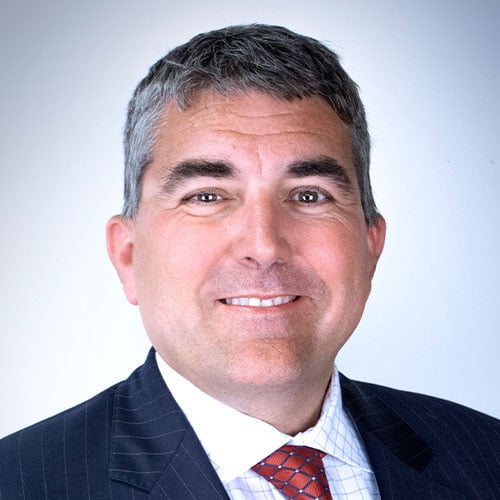In my career, both as an estate planning attorney and now as a wealth advisor, it’s been incredibly rare to come across wealth clients with no estate planning documents. But it’s equally uncommon that those clients understand what those documents are, why they have them and how they work.
Ultimately, your economic peace of mind is achieved by aligning your resources with the impact you want those resources to have on the ones you love. So, understanding—as opposed to assuming or hoping—that your loved ones will be cared for in the way you intend is critical to building an enduring legacy.
With that in mind, here are the key estate planning tools, why they exist and how they work:
Revocable Trust
You should have a revocable trust as your distribution and impact document. A revocable trust is designed to own your assets both during your life and after your death. There are two main purposes of having your assets owned by your revocable trust rather than by you personally. First, when you die, your assets continue to be owned by the trust. This continuation of ownership avoids the necessity of subjecting the property to the probate process. While this post will not delve into the intricacies of the probate process, there are two points that should be made about probate. One, it is more time-consuming, costly, inefficient and public than any of the other transfer alternatives. Two, of the thousands of clients I have advised, none of them, once educated about the process, have chosen to be subjected to it. So, the first reason to have a funded revocable trust as part of a well-crafted estate plan is probate avoidance.
The second reason to have lifetime assets owned by a revocable trust is incapacity planning. Given that your trust, rather than you, owns your property, decision-making authority over that property is defined by the trust. A revocable trust has two key roles: the trustee and the beneficiary (or beneficiaries). The trustee is the person who manages the trust property: the trustee determines how it’s invested, how it’s spent, when it’s used, how it’s used, etc. The beneficiaries are the people who get to enjoy that usage, as directed by the trustee. When you create a revocable trust, you will be the trustee and the beneficiary. But, if you become incapacitated, the trust will remove you as trustee and appoint a person of your choice to handle your financial affairs when you are unable. This transition of decision-making authority is the most seamless available.
As for the operation of the revocable trust upon your death, the property remains in trust, but roles and authorities change. Obviously, you can no longer be the trustee and the beneficiary. Therefore, the trust appoints a new decision maker to manage the property for the enjoyment of your loved ones. Thereby, the revocable trust’s purpose shifts from convenience during your life to the impact of loved ones. How that impact is defined and executed is the focus of more in depth posts on trust construction.
Will
The most common cocktail party question I get when people find out I’m an estate planning attorney is “do I need a will?” My response, I think, is a little different than others that do what I do. I answer that question with a question: “do you have minor children?” If the answer is no, then my answer is also no. A revocable trust does everything a will does, only better. If you have a revocable trust, you do not need a will. It adds nothing to your plan. But if the inquisitive party goer answers yes, then I too answer yes. At least under Wisconsin law, the will is the only document in which you can nominate the guardian for a minor child. Not having one abdicates your parental responsibility to select the right person to raise your child in your absence, something parents should not do.
Durable Power of Attorney
A durable power of attorney allows you to appoint a person to make financial decisions for you. That appointment can be immediate or it can be contingent upon your incapacity. If the power of attorney makes the appointment contingent upon incapacity, it is known as a springing power of attorney. You should have a durable power of attorney as part of your estate plan.
First, let’s clarify who has authority over which financial decisions. For property held in trust, it is the trustee, not the financial power of attorney who has authority over that property. So, if you follow the advice in this post and have all your property owned by your revocable trust, why do you need a financial power of attorney? Because not all financial decisions are triggered by the ownership of property. For example, the ability to cash checks made out to you or to pay bills personal to you are the purview of the financial power of attorney, not the trustee.
The second common question surrounding financial powers of attorney: should my power “spring?” While that is a personal decision, my answer is generally no. It is better to empower someone you trust to handle your financial matters without having to undertake the somewhat onerous process of proving your incapacity.
Finally, should the person you choose as your successor trustee be identical to the person you choose as your power of attorney? Given the identical nature of the role (at least with respect to the successor trustee while you are alive), it would be incredibly rare (I cannot think of an example in my practice), where they are not the same person.
Health Care Power of Attorney
A health care power of attorney is a document in which you choose someone to make health care decisions for you when you cannot. A couple of points about health care powers: One, unlike financial powers that can be springing or immediate, health care powers can only be “springing.” If you can communicate, you make your own health care decisions. And if your incapacity is the triggering event for your health care agent to act on your behalf, two medical professionals must declare you incapacitated. Second, you might have several adult children and want them to act together as co-health care agents. But the law does not allow that, as only one person can act as health care agent at a time. Third, you might have heard of a living will and wonder if that, rather than a health care power of attorney, is the right controlling document for your health care decisions.
So, what is a living will? A living will, like a health care power of attorney, is a communication between you and a medical professional. A health care power of attorney empowers your decision maker. A living will selects your medical care. The problem with a living will is frequently the care chosen (or rejected) is not timely. For example, under common living will standards, many people alive today would have been prematurely removed from life saving ventilators during the Covid crisis. Given the medical limitations of living wills, a health care power of attorney (combined with detailed guidance to your health care agent of your wishes and beliefs) is the preferable document.
Conclusion
As I mentioned above, most of the wealth clients I advise have the correct estate planning documents in place. Yet many, if not most, do not understand why they exist, what they say or how they work. If you would like to understand what you have, how your documents work and how they integrate into your broader wealth strategy, please contact a Johnson Financial Group wealth advisor.
ABOUT THE AUTHOR

SVP Director Wealth Strategy JD, CPA | Johnson Financial Group
Joe has extensive experience helping high‐net worth individuals, family offices, business owners and corporate executives meet their wealth and legacy goals. His areas of specific interest and skill include business succession planning, financial and estate planning, and wealth transfer strategies.



